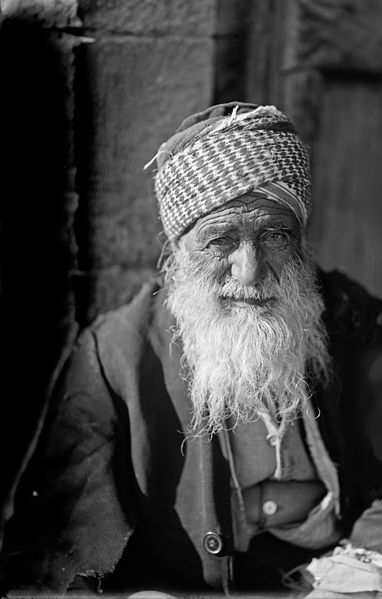
The term “Jew” – Yehudi in Hebrew – can mean various things depending upon the context and the time period the term is used.
Originally a Yehudi would have been a member of the Tribe of Yehuda. The original Yehudim were members of this tribe. Later the term Yehudi was used to refer to anyone residing in the Kingdom of Yehuda which would include members from not only the tribe of Yehuda but also of the tribes of Levi, Binyamin, and the other tribes. This is why we see Mordecai referred to as both a member of the tribe of Binyamin and a Yehudi.
In the fortress Shushan lived a Jew (יְהוּדִי) by the name of Mordecai, son of Ya’ir son of Shim’i son of Qish a Benjamite (אִישׁ יְמִינִי) . (Ester 2:5)1
After B’nei Yisrael was exiled by the Romans from Eretz Yisrael the term “Jew” began to refer to anyone who descended from Yaakov or those who converted to Judaism. This is the modern-day usage of the term “Jew.”
Yehuda was born to Le’a and Yaakov and in the verse announcing Yehuda’s birth we see the meaning of his name.
She conceived again and bore a son, and declared, “This time I will praise יהוה [the Eternal One].” Therefore she named him Yehuda (יְהוּדָה). Then she stopped bearing. (Bereishit 29:35)1
The name Yehuda (יהודה) means “she (Le’a) praises יהוה [the Eternal One].”
יְהוּדָה = + ה + הוד + יהו
יהו – abbreviated form of יהוה
הוד – praise, worship
ה – feminine suffix
The term Yahadut (יהדות) means “you praise יהוה [the Eternal One].” This is the Hebrew word for what is commonly known as Judaism.
יהו – abbreviated form of יהוה
הוד – praise, worship
ת – second-person suffix
The term Yehudi (יהודי) means “I praise יהוה [the Eternal One].”
יהו – abbreviated form of יהוה
הוד – praise, worship
י – first-person suffix
So, why was Mordecai called a Yehudi and a member of the tribe of Binyamin? He was called a Yehudi because he praised the Eternal One.
We even see in Divrei Hayamim that the daughter of Par’o is called a Yehudi.
And his Judahite (הַיְהֻדִיָּה) wife bore Yered father of Gedor, Hever father of Sokho, and Yequti’el father of Zanoah. These were the sons of Bitya daughter of Par’o, whom Mered married. (Divrei Hayamim Aleph 4:18)1
In the simplest meaning, a “Jew” – a Yehudi – is anyone who praises the Eternal One. This is why the patriarchs – Avraham, Yitzchak, and Yaakov – can be rightfully called Yehudim. Since the matriarchs – Sara, Rivka, Rachel, and Le’a – also praised the Eternal One they can also be called Yehudim.
According to Rabbinic Judaism a child is born a Jew if he or she is born to a mother who was a Jew at the time of his or her birth. According to Karaite Judaism it is the father who determines who is and who is not a born Jew.
For the person who is not born of a Jewish mother – in Rabbinic Judaism – or a Jewish father in Karaite Judaism, there is an open invitation to accept the Eternal One as their God and become a Yehudi.
According to Rabbinic Judaism in order for one to convert there must be a period of study under a sponsoring rabbi (or someone appointed by the rabbi). After a period of time the person will go before a beit din – a court of rabbis – who will determine if the person is going to be accepted for conversion. If the person is accepted the males must be circumcised. The person must state that he or she gives up any other faith systems and will follow Torah and all the mitzvot as defined by the rabbis. Finally, the person must go and immerse in a mikvah before the beit din.
According to Karaite Judaism a person who declares his or her intention before witnesses of following the Eternal One as God and keeping Torah is considered a Yehudi. The only additional requirement is for all males to be circumcised.
For those wishing to convert Karaite Judaism he or she must accept the three fundamental principles of Karaite Judaism.3
1. Believe in the Eternal One as the only God and renounce all others.
2. Believe in the Tanakh as the words of the Eternal One and the only religious authority – renounce all other writings, doctrines, and creeds as words of men.
3. Study and keep the Tanakh while striving to interpret the Tanakh according to its peshat (plain) meaning.
In addition, the person will also need to accept the principles expressed in the ancient Karaite Vow:
By the covenant of Mount Sinai and the statutes of Mount Horev I will keep the holy appointed times of YHVH according to the New Moon and the finding of the Aviv in the Holy Land of Yisrael, when possible.3
All males who wish to convert to Karaite Judaism must be circumcised. Circumcision can be performed by any qualified medical professional.
Finally, when the person is ready to formally convert it is important that he or she join himself or herself to the Eternal One by vowing before other Yisraelites that “יהוה [the Eternal One] is my God and Israel is my people.”
A Yehudi is someone who believes that the Eternal One is the One and only God, declares his or her intention to follow Tanakh, and declare that Yisrael is his or her people. There is always an open invitation for those who wish to leave the non-Tanakh based faith systems of the world to become a Yehudi.
——————–
1David Stein (ed.). JPS Hebrew-English Tanakh. Philaelphia: Jewish Publication Society, 1999.
2al-Qirqisani Center. An Introduction to Karaite Judaism: History, Theology, Practice, and Custom. Troy, NY: al-Qirqisani Center for the Promotion of Karaite Studies, 2003.
3Nehemia Gordon. “How Do I Convert to Judaism.” karaite-korner.org. Karaite-Korner, n.d.
